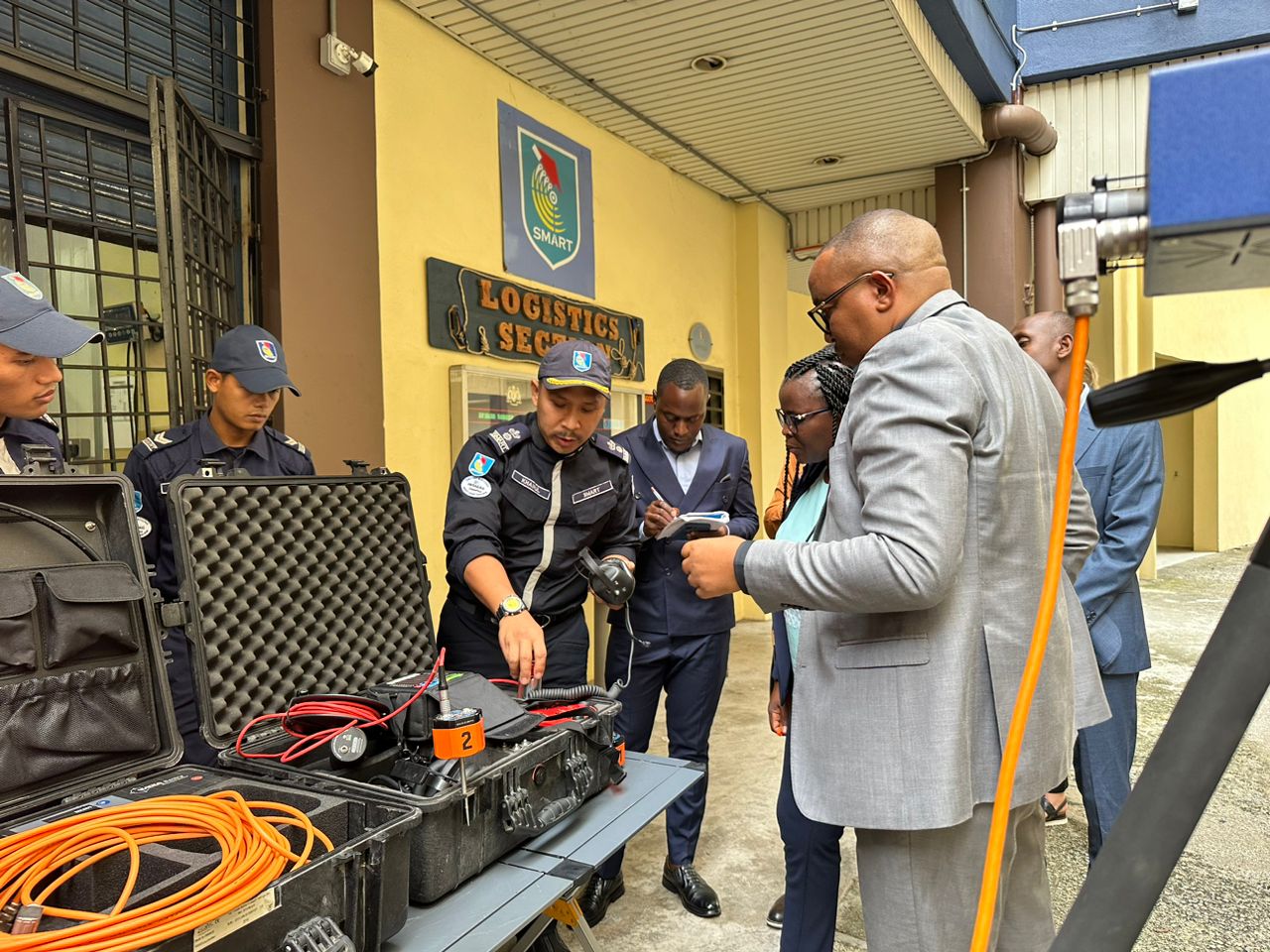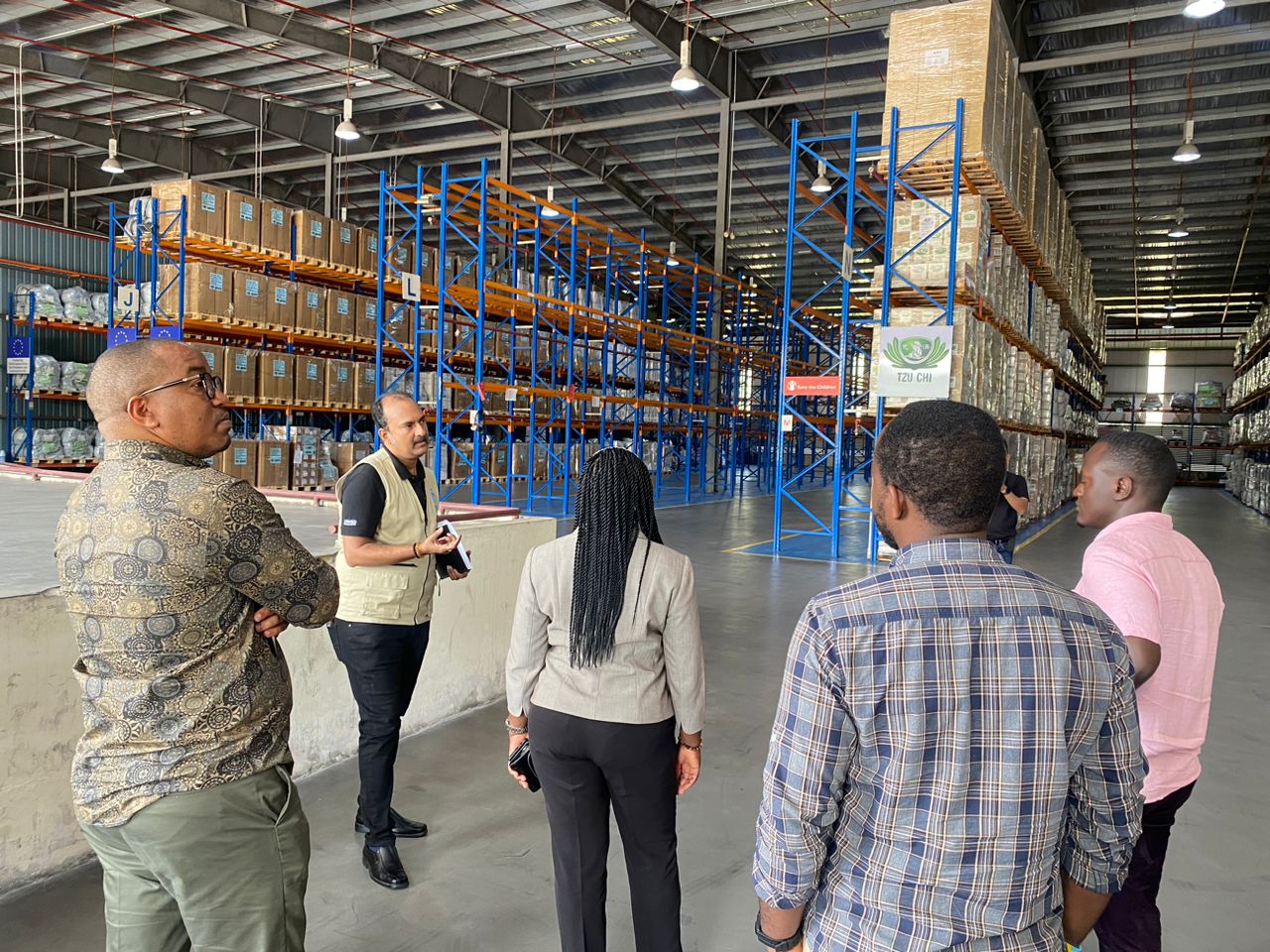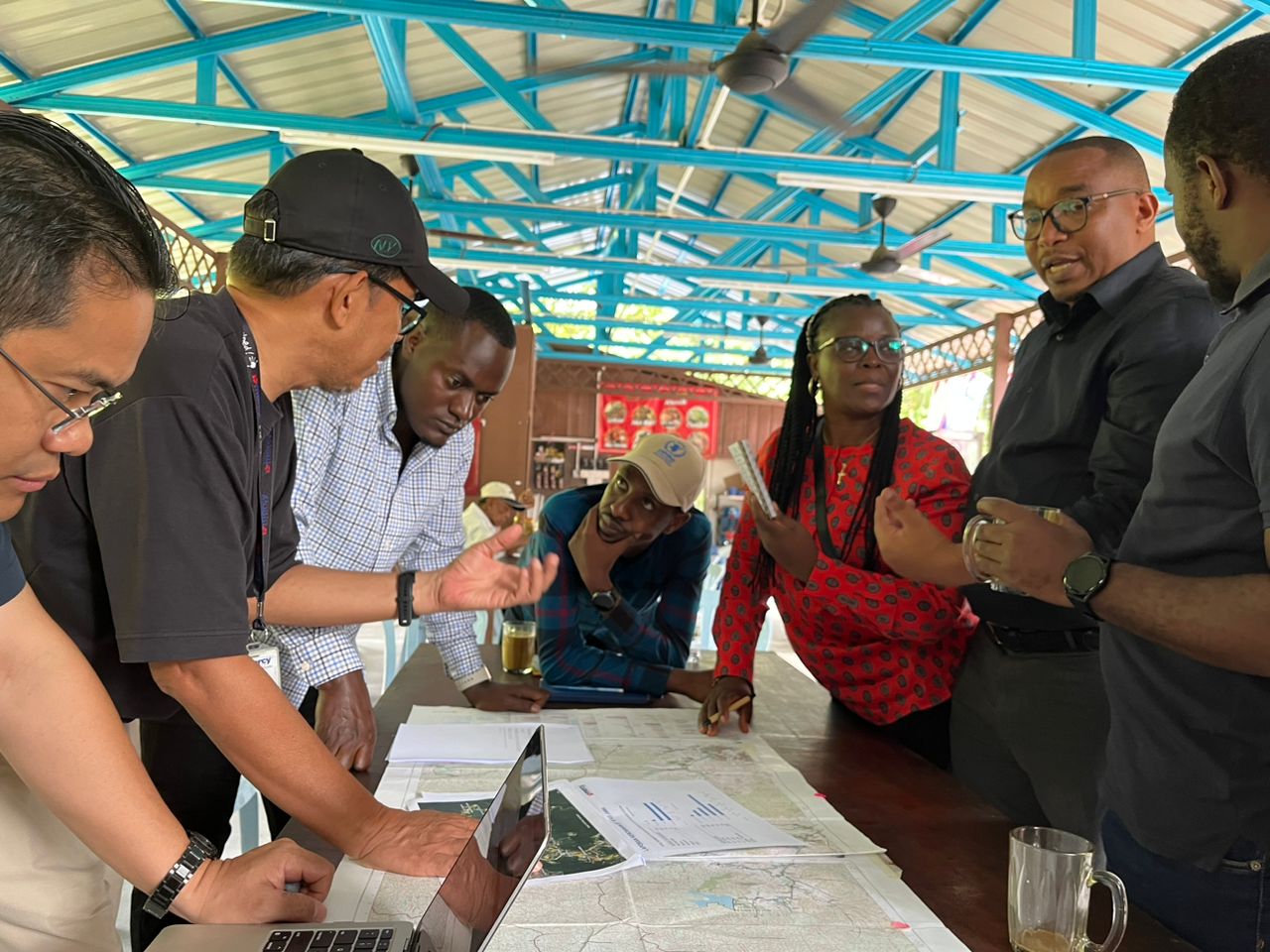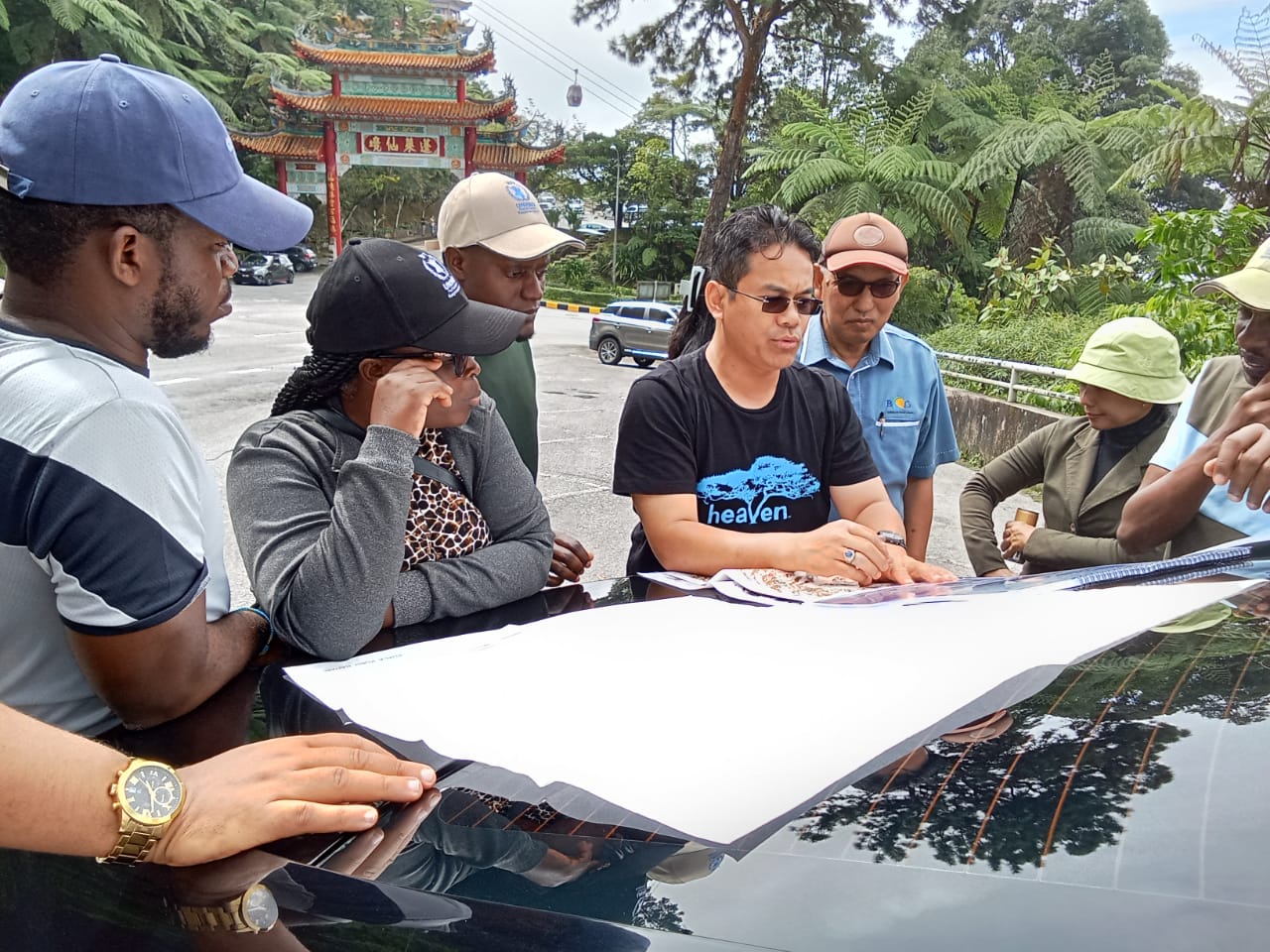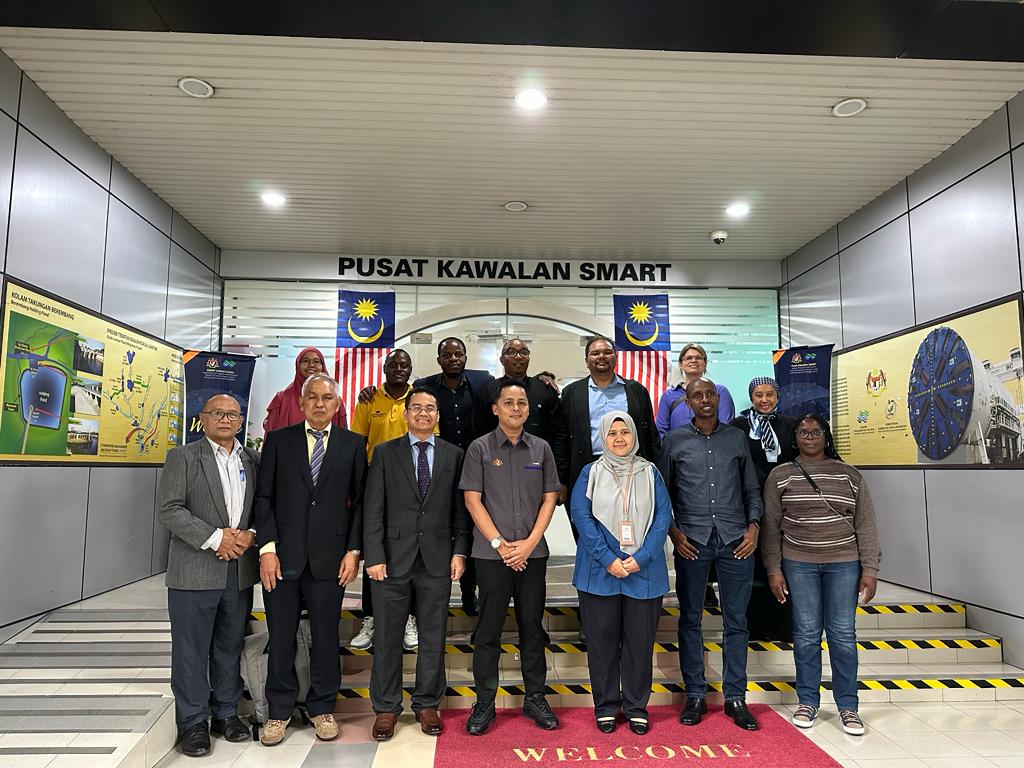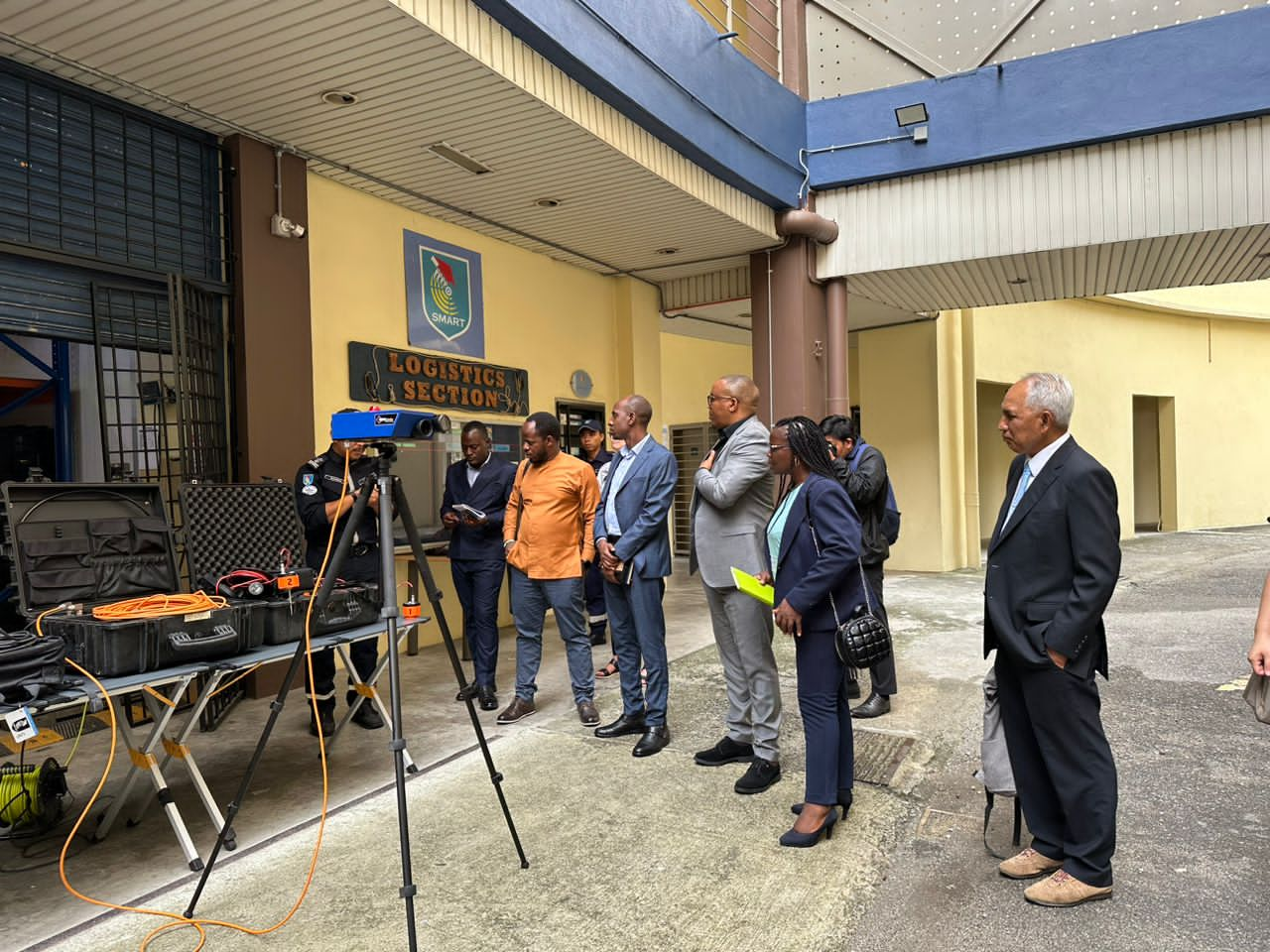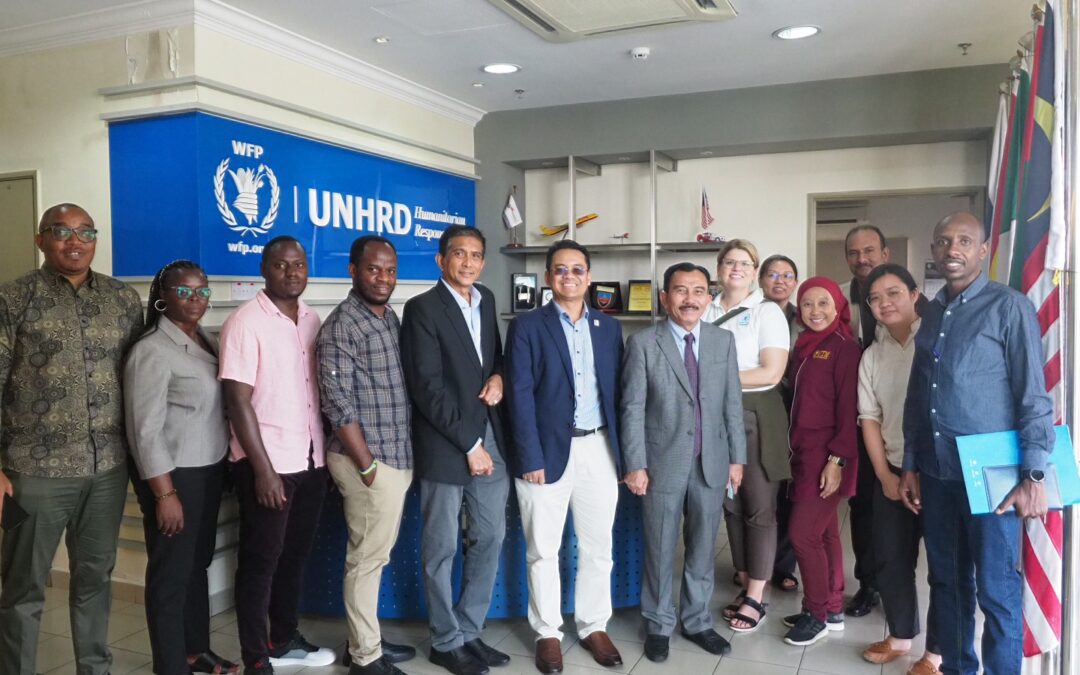In the ever-changing landscape of our planet, nature disasters have become a recurring global challenge. This continent-to-continent program explores a new insight into the multi-scale disaster risk reduction (DRR) agenda and disaster resilience strategies for managing emerging hazards, systemic risk, and compound disaster in a climate change. The study visit on the disaster risk reduction and management (DRRM) for the Ministry in Charge of Emergency Management (MINEMA) Rwanda and the World Food Programme (WFP) is co-organized by the National Disaster Management Agency (NADMA), Prime Minister’s Department and Disaster Preparedness and Prevention Center (DPPC), Malaysia-Japan International Institute of Technology (MJIIT), Universiti Teknologi Malaysia (UTM) Kuala Lumpur was held in the period of 27 August till 03 September 2023.
This multi-tier program explores design options and integration of programme interventions and information systems for effective implementation of disaster risk reduction and management interventions to reaffirm our commitment to the global agenda and rejuvenate our local action as stated in the UNDRR, Sendai Framework for Disaster Risk Reduction 2015-2030, Paris Agreement, and 2030 Global Agenda for Sustainable Development. This visit is an activity supported through a WFP internal Global South-South Cooperation Trust Fund. It promotes peer learning among host governments in the Global South to accelerate their progress towards zero hunger.
Representatives from Rwanda’s Ministry in Charge of Emergency Management (MINEMA) include Mr Adalbert Rukebanuka (Director General Policy Planning Risk Reduction), Mrs Christine Niyotwambaza Hitimana (Director General Surveillance and Preparedness), Mr Roger Mizero (Chief Digital Officer), Mr Philemon Niyogakiza (Structural Risk Recovery and Resilience Specialist) and representative from World Food Programme (WFP), Rwanda include Ms Tiina Honkanen (Head of Programme, OIC) and Mr Fred Tumwebaze (DRM Policy Advisory).
The primary objective of this study visit was to facilitate knowledge exchange and capacity-building in Disaster Risk Reduction and Management. The delegations from MINEMA and WFP Rwanda aimed to gain insights from Malaysia’s extensive experience and expertise that underpin preparedness and response actions, the institutionalisation of national disaster risk financing framework, and risk-informed sustainable development. Secondly, this study tour provides a new insight into the multi-scale DRR and resilience strategies for managing emerging hazards, systemic risk, and compound disaster in a changing climate. Additionally, this visit was taken to strengthen collaboration between Rwanda and Malaysia in DRRM, fostering a global network of practitioners dedicated to building disaster-resilient communities.
Key Highlights
- Policy and Strategy Discussions: The study visit began with a series of courtesy visits to various institutions and places. The institutions included government agencies, civil society organizations and high learning institutions. Courtesy visit and high-level meetings were held National Disaster Management Agency (NADMA), Prime Minister’s Department, National Disaster Command Center (NDCC), Federal Department of Town and Country Planning (PLANMalaysia), Ministry of Women, Family and Community Development (KPWKM) and MERCY Malaysia. This discussion covered a wide range of topics, including disaster risk governance, big data analytics, humanitarian-development nexus (HDN), risk-informed development agenda, mandate, and shared responsibility in disaster risk management.
- Field Trips to Key Sites: Delegations had the opportunity to witness Malaysia’s DRRM initiatives in action through field visits to disaster-prone areas at Resilience Living Lab Hulu Langat, passing through SMART Tunnel and Batang Kali, Genting Highlands. These visits highlighted Malaysia’s innovative approaches to disaster management, such as the use of technology early warning systems, world’s longest stormwater drainage tunnel in Southeast Asia, landslide mitigation and community-based disaster risk reduction programs (build-back-better) to support MINEMA in developing roadmaps and action plans.
- Experience Sharing: Malaysia-Rwanda DRR Dialogue & Forum 2023 held in conjunction in conjunction with this study visit by elevating participant’s knowledge in relevant field with inputs from Rwandan and Malaysian experts to exchange experiences, as part of our commitments to United Nations Office for Disaster Risk Reduction (UNDRR) Sendai Framework for Disaster Risk Reduction 2015-2030. This seminar involved experience exchange from Rwanda as well as various local stakeholders to ensure that the best practices, benchmarking, and local action are shared to prevent future disaster risk.
- Disaster Simulation Exercises: To provide a practical understanding of disaster response, disaster simulation exercises were conducted by a well-trained Special Malaysia Assistance and Rescue Team (SMART) using tools and equipment for all disasters readily for Search and Rescue. These exercises allowed participants to apply the knowledge they had gained during the demonstration in a realistic setting, emphasizing the important of coordination and communication during disaster. The present of United Nations Humanitarian Response Depot (UNHRD) World Food Programme (WFP) demonstrated the world humanitarian response investment by the provision of relief items is decentralized on district level, with each evacuation center having the basic relief items needed available on site.
Key Takeaways
This study visits to Malaysia proved to be transformative experience for the delegations from MINEMA and WFP Rwanda, some of the key takeaways include:
- Co-designing long-term capacity building programs for developing human capital and subject-matter-experts.
- Partnering with Malaysia to get the technological innovation used in building Flood Early Warning systems over the river catchments.
- Rejuvenating Multi-scale DRR Strategies in disaster risk reduction for societal resilience based on global, regional, and local best practices; improved understanding on multi-scale disaster risk, preventive strategies and understanding risk governance, communication, and investment to address future systemic risk, cascading hazards and compound disaster.
The Study Visit Rwanda Ministry in Charge of Emergency Management (MINEMA) & UN World Food Programme (WFP) on Disaster Risk Reduction and Management (DRRM) has been a resounding success fostering collaboration and knowledge exchange between two nations committed to UNDRR, Sendai Framework for Disaster Risk Reduction 2015-2030. The lessons learned from Malaysia’s experience will undoubtedly contribute to Rwanda’s ongoing efforts in DRRM. As both nations continue to work towards disaster-resilient communities, the spirit of international cooperation and shared learning will remain a powerful force in shaping a safer and more secure future for all.
In the face of an unpredictable climate and increasing disaster risks the knowledge gained during the study visit will be invaluable in helping Rwanda and other nations around the world prepare to mitigate and respond to disasters effectively. The collaborative efforts of countries like Rwanda Malaysia inspire hope and set an example for global cooperation in the realm of disaster risk reduction and management.
